
|
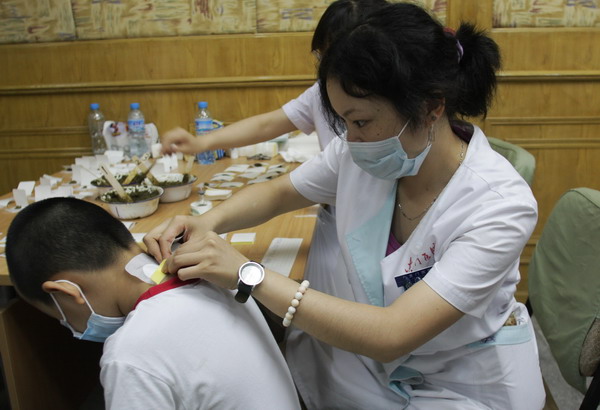 Appropriate TCM treatments can help you beat a wide variety of diseases. [Photo/provided to China Daily]
|
Dr Luke Cheng, Traditional Chinese Medicine (TCM) expert at the United Family Hospital in Beijing, offers some homegrown advice on how to use TCM to battle the winter woes.
|
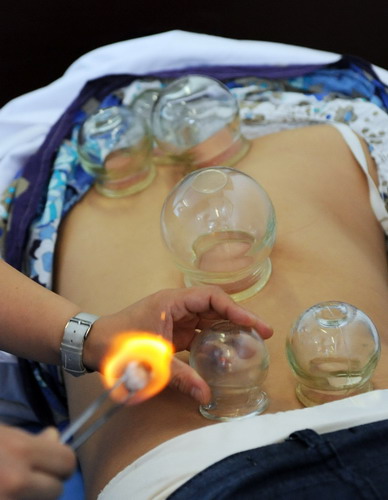 Cupping. [Photo/provided to China Daily]
|
TCM therapies
Body aches and pains are one of the many symptoms brought on by the winter cold, but they don't have to be debilitating.
Stepping outside the realm of herbal remedies, TCM therapies can be equally effective as oral medicines for treating cold/flu symptoms, Cheng said.
Techniques such as TCM massage, pressure point therapy and cupping, work wonders to relieve a sore body suffering from the cold or flu.
But, as with several TCM techniques, Dr Cheng warns that these are only suitable during the onset of an illness and, if used when the virus has taken full effect, can hinder recovery.
Herbal solutions
One of the best-known characteristics of TCM is its ancient knowledge on how to use herbs and other natural substances to help the body fight or recover from illness.
While there is no official "cure" for the common cold, there are a variety of herbal medicines that can help fight the symptoms, Cheng said.
Eating fresh perilla leaf (zi su ye) as an appetizer and chicken soup with astragalus (huang qi), or goat's thorn will help fortify the immune system, assisting it in preventing the onset of the cold or flu.
Garlic in cooking or in capsule form is another effective herb to help fight fever.
|
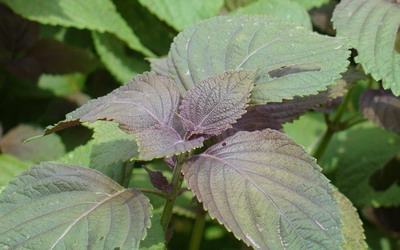 Perilla leaves. [Photo/provided to China Daily]
|
|
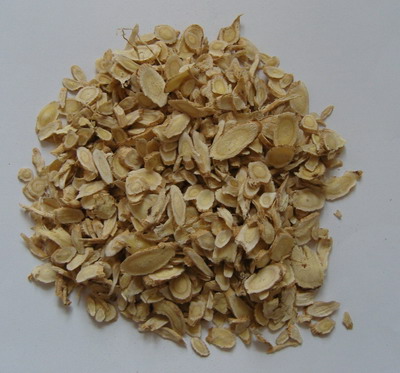 Astragalus. [Photo/provided to China Daily]
|
While Western medicines have become increasingly more available in Beijing during the past years, they are expensive. Dr Cheng says TCM alternatives to over-the-counter drugs can be equally effective and cost half the price.
For milder cold symptoms ganmao qing re granules are one of the most popular over-the-counter medications available for sneezing and a runny nose. But if it worsens, ban lan gen granules can take care of a cough, sore throat, and thick phlegm, Cheng said.
For the most serious cases, Cheng recommends seeing a TCM doctor and taking a small dose of over-the-counter syrups such as xiao qing long.
Eat 'replenishing' foods
Traditional Chinese Medicine is more than just herbs and physical therapies, it's about balance of nutrition and lifestyle.
Cheng suggests eating from a list of bu foods, which translates as "replenishing".
"The idea is that these food products make up for what the body lacks. It's all about balance," he said.
Foods such as pork, venison, sea cucumber and other protein-rich meats, as well as beans and nuts are among the best replenishing foods, Cheng said.
But he warns that eating the foods after getting sick, or eating too much of them will do more harm than good.
|
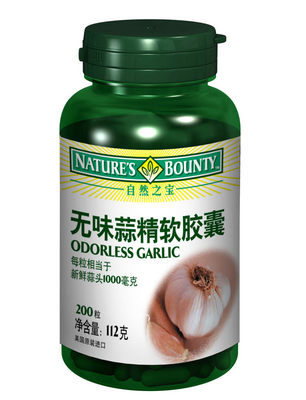 Garlic capsules. [Photo/provided to China Daily] |
When East meets West
The most effective treatments occur when China's oldest medical knowledge meets modern Western pharmaceuticals, according to Cheng.
"The clinical practice of combining Western medicine and Traditional Chinese Medicine has been followed for more than five decades in China," he said.
With illnesses such as the H1N1 virus, getting a flu shot as well as taking antiviral drugs can be used early on to greatly reduce the risk of such infections, whereas TCM can be used to treat the symptoms and help the sick person recover more quickly.
"We should not say TCM is better, but appropriate herbal therapy can make the illness milder and shorten the time you are sick," Cheng said.
|
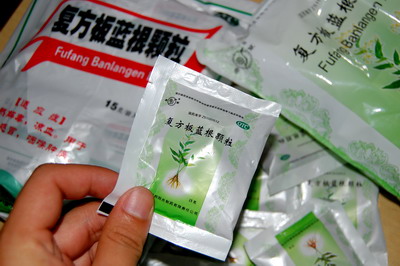 Ban lan gen granules. [Photo/provided to China Daily]
|